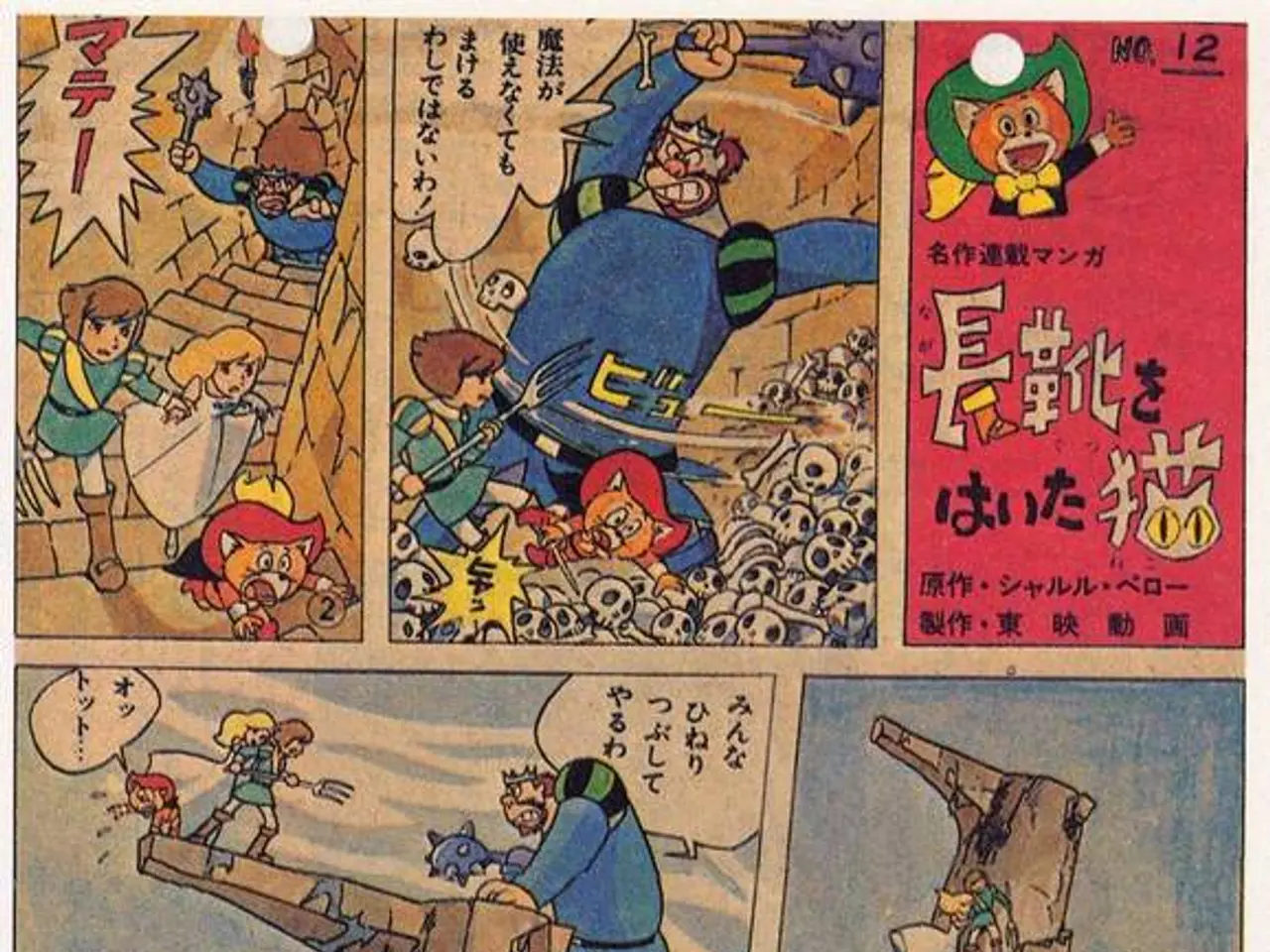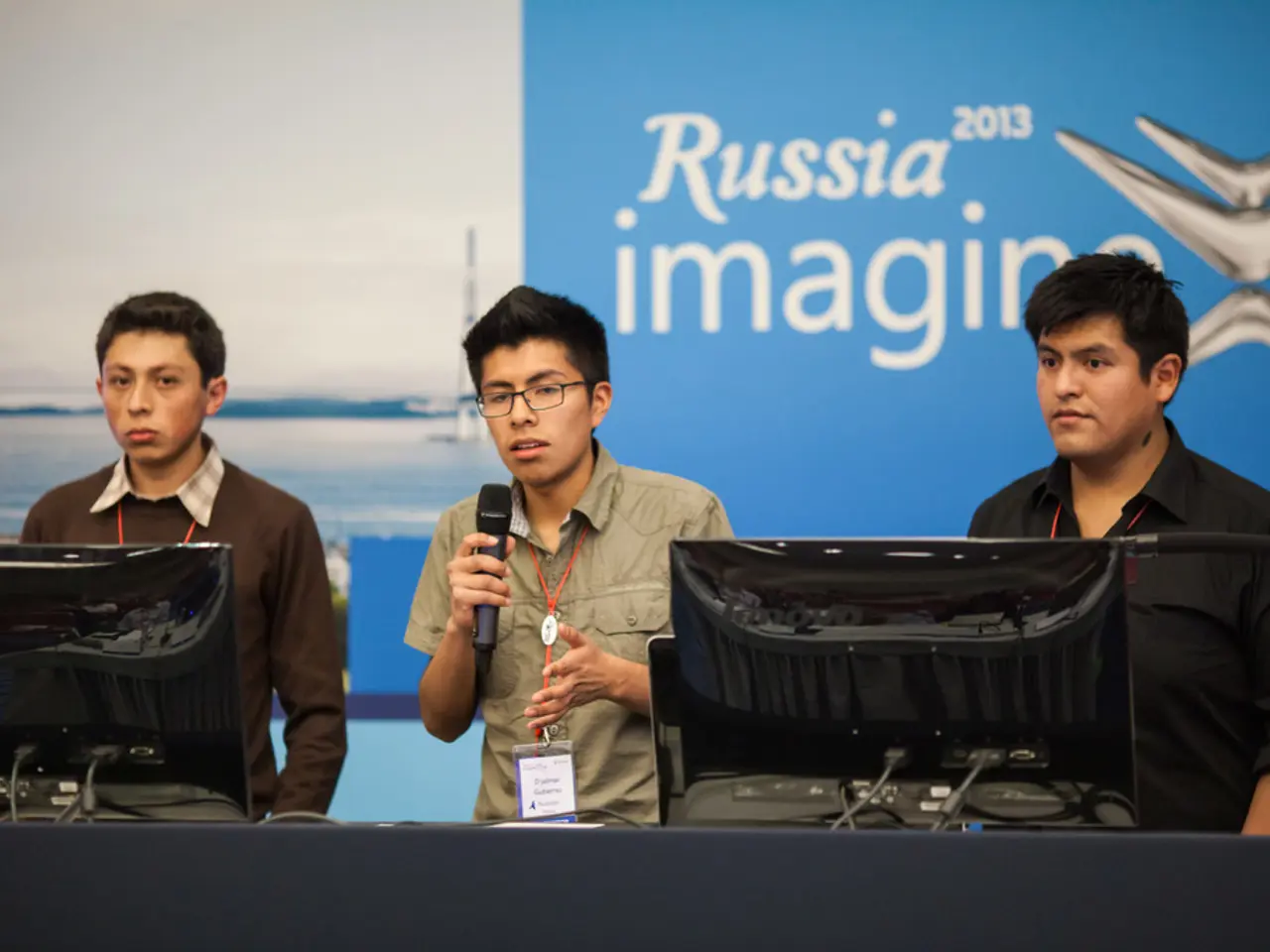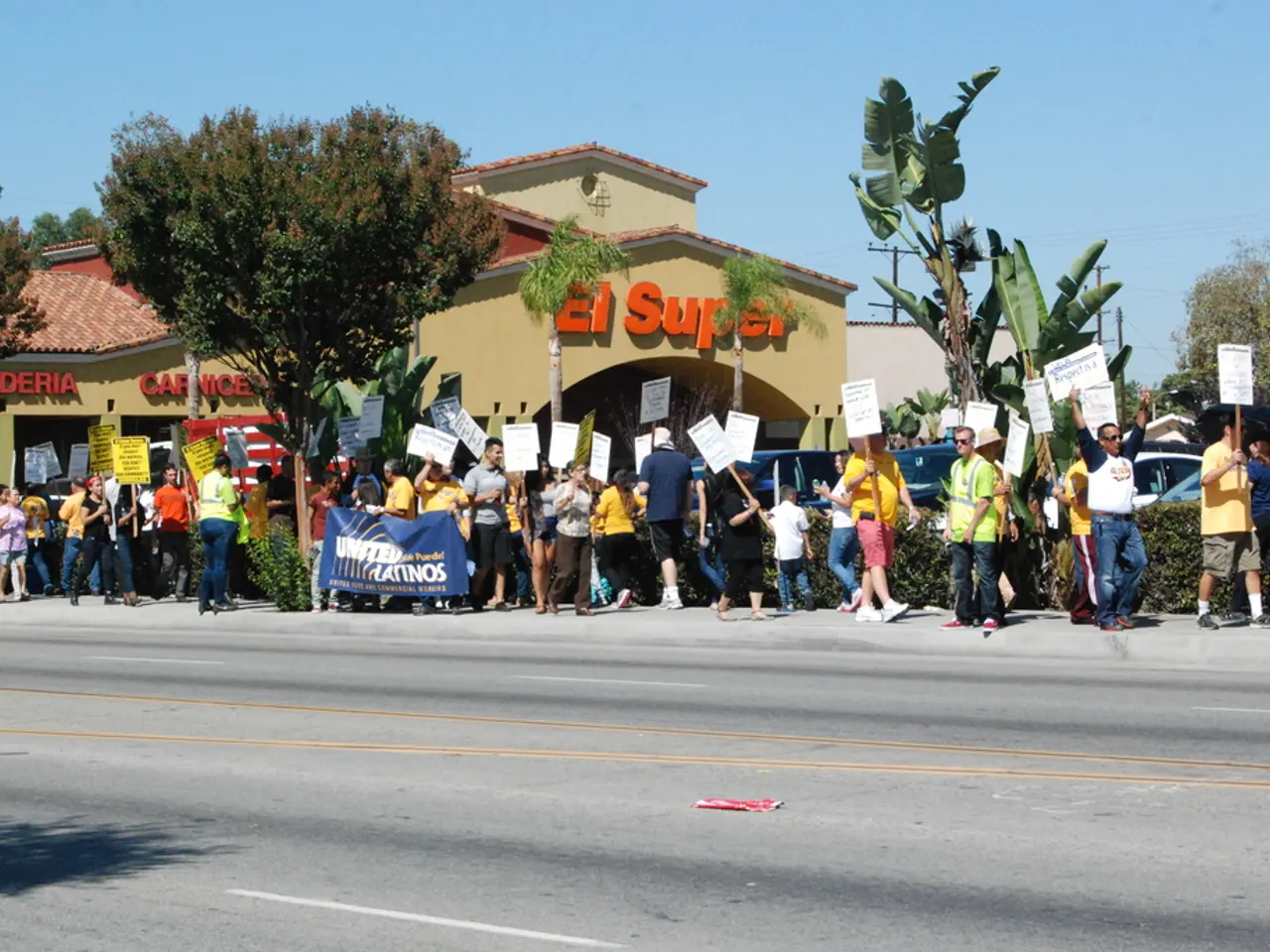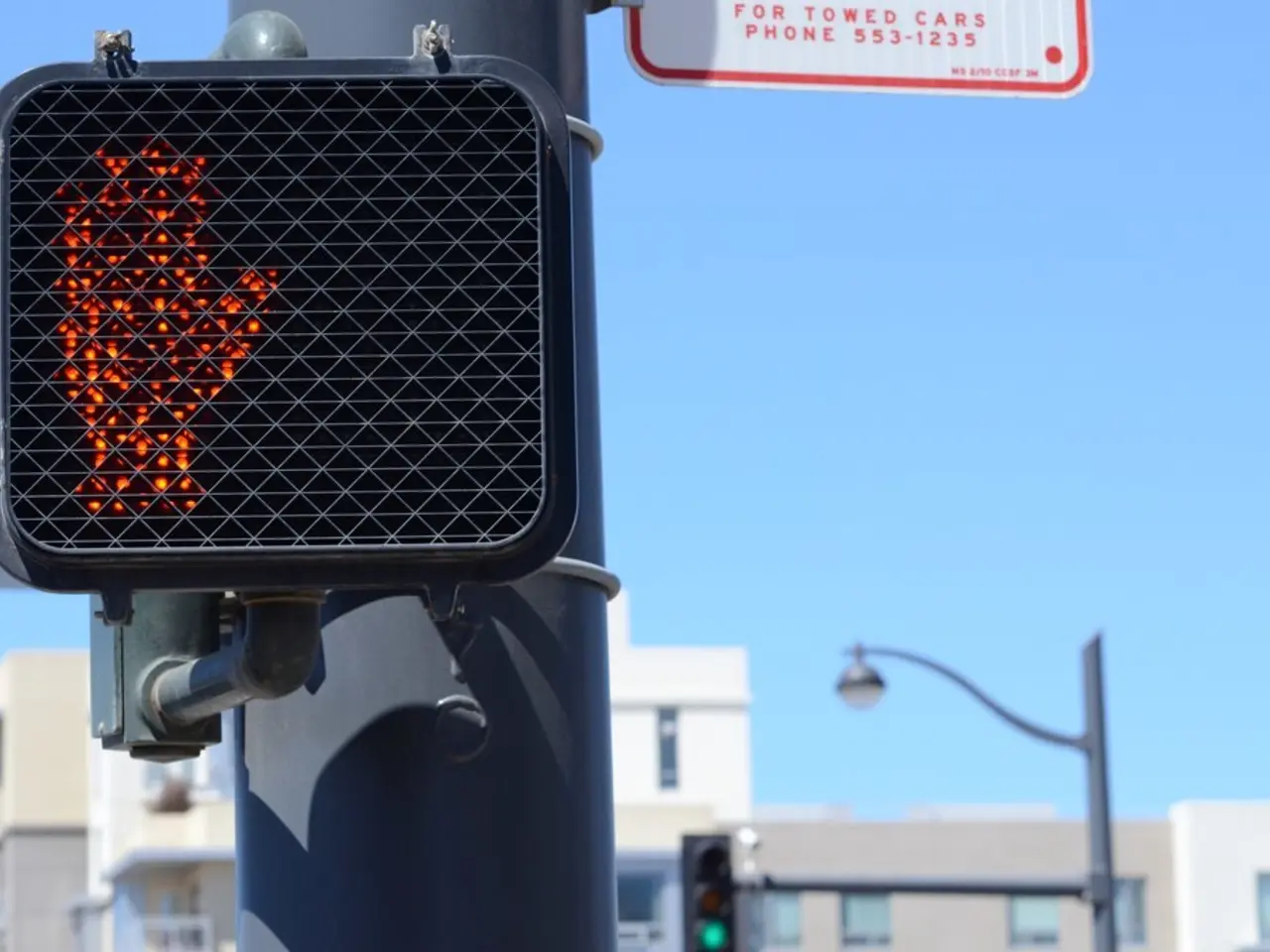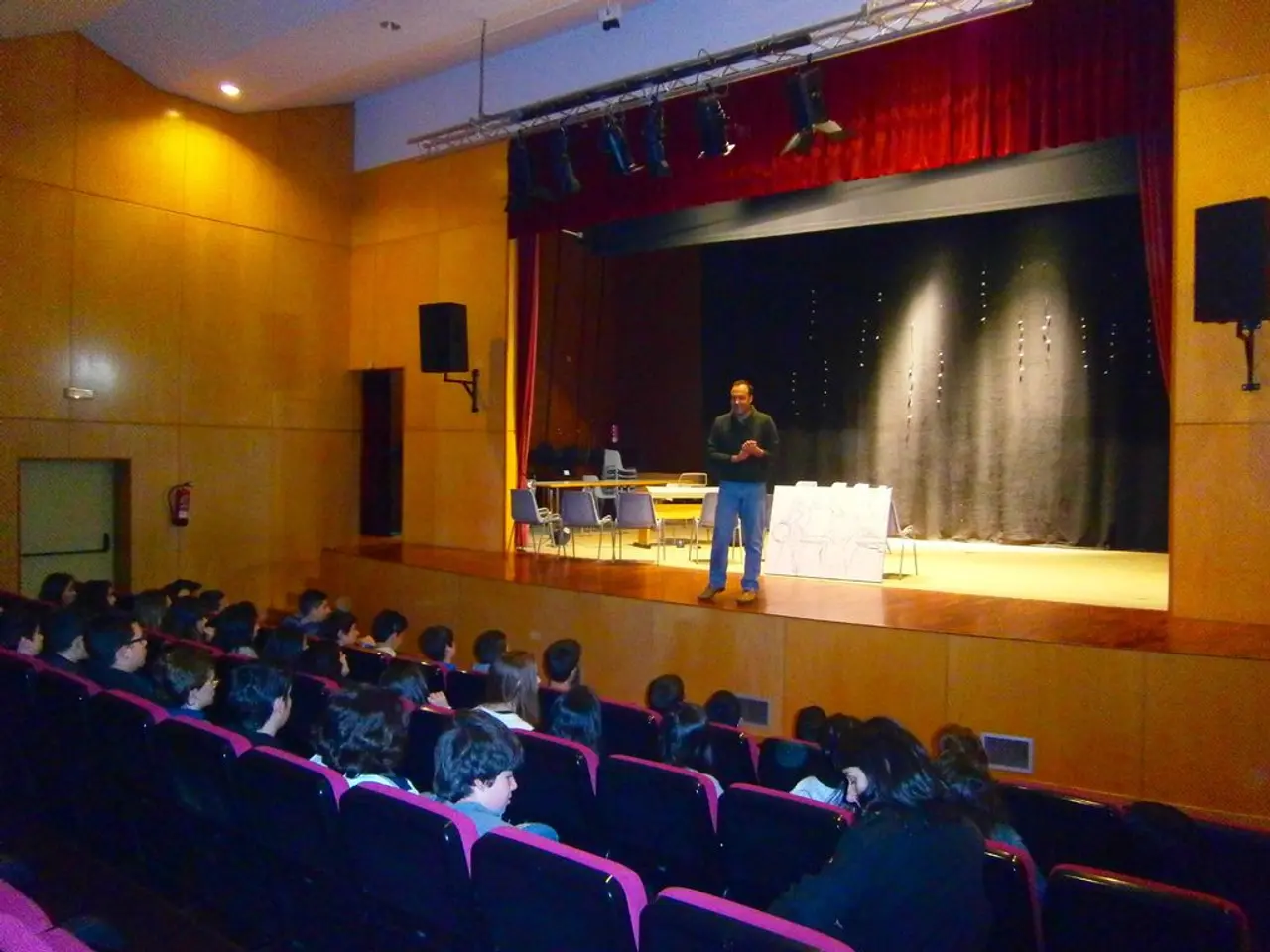Mourning the causalities of the nuclear attack in Hiroshima, memorializing the tragic event that occurred 80 years ago
In the shadow of a growing nuclear weapon threat globally, concerns have been raised in Japan, with peace education efforts facing challenges. Despite the looming threats, there are active calls for nuclear disarmament inspired by the hibakusha (survivors of Hiroshima and Nagasaki) and civic groups in Japan.
Recent developments have highlighted the increasing geopolitical tensions and erosion of trust, leading to a higher risk of nuclear conflict. At the 80th anniversary commemorations of Hiroshima and Nagasaki in August 2025, officials highlighted these tensions, citing conflicts like in Ukraine and the Middle East as examples.
The UN Secretary-General reiterated that nuclear weapons offer only an “illusion of safety” and must be totally eliminated, urging global recommitment to disarmament treaties like the Treaty on the Non-Proliferation of Nuclear Weapons and the Treaty on the Prohibition of Nuclear Weapons. Initiatives like the Mayors for Peace conference in Nagasaki focus on mobilizing communities and young people around nuclear disarmament and peacebuilding.
However, this global advocacy contrasts with the declining prominence or weakening of peace education in Japan. The urgency expressed by Hiroshima’s mayor alerts to challenges in sustaining public awareness amid geopolitical and generational shifts. While direct recent data on peace education trends in Japan was not provided, the situation is concerning.
The continuing memory of the atomic bombings and the survivors’ voices remain central in Japan’s nuclear discourse. However, public and international attitudes toward nuclear weapons show mixed feelings. The impact of the eyewitness accounts and appeals against nuclear weapons by the Hibakusha is fading, even in Japan.
There are voices in Japan openly calling for the country to acquire nuclear weapons, despite being the only country to have been targeted by atomic bombs. This underscores the critical importance of strengthening education and global cooperation to maintain peace and prevent nuclear conflict.
In 1945, the atomic bombings of Hiroshima and Nagasaki left an indelible mark on the world. On August 6, the bomb named "Little Boy" was dropped over Hiroshima, killing around 70,000 residents instantly. Three days later, a second atomic bomb was dropped over Nagasaki. Approximately 140,000 people died in total by the end of 1945 due to the atomic bombing of Hiroshima.
The Japanese organization Nihon Hidankyo, consisting of survivors of the atomic bombings of Hiroshima and Nagasaki, was awarded the Nobel Peace Prize last year, emphasizing their continued anti-nuclear advocacy. However, the impact of their efforts seems to be waning, with experts observing that Japanese youth today know very little about the war, primarily relying on sensational manga comics, tear-jerking TV dramas and films, or lurid internet content for information about the war.
This situation is further complicated by a breakdown in nuclear diplomacy and public awareness, increasing the risks of miscalculation and nuclear weapon use. The erosion of peace education programs in Japan, due in part to conservative politicians and education bureaucrats, is a significant concern.
In summary, recent developments illustrate a heightened nuclear threat backdrop combined with a renewed but challenged peace movement in Japan, with implications for global disarmament efforts and the need to reinvigorate peace education to protect past lessons for the future.
- The United Nations Secretary-General's call for complete nuclear disarmament and the push for global recommitment to treaties, such as the Treaty on the Non-Proliferation of Nuclear Weapons and the Treaty on the Prohibition of Nuclear Weapons, falls under the category of 'politics' and 'general-news'.
- The erosion of peace education programs in Japan due to conservative politicians and education bureaucrats, in the context of rising geopolitical tensions and a higher risk of nuclear conflict, is a concern that fits within 'war-and-conflicts' and 'general-news'.
